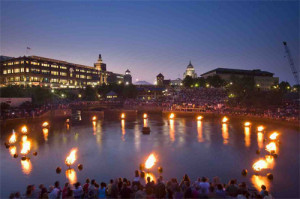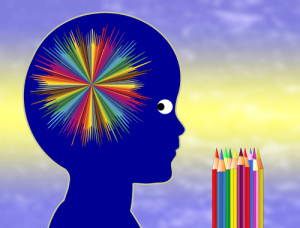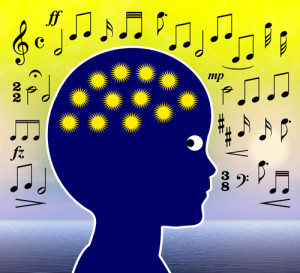In preparation for November elections, political candidates are engaging in numerous conversations about education, the economy, and building healthier, happier communities. Hundreds of aspiring politicians across the country are vying for an official position and a voice in the decision-making processes that govern our states. A common missing element in these campaigns is the importance of the arts to all these areas of concern. In Massachusetts, MASSCreative has invited everyone to join in the conversation about the value of creativity and the arts by designating October 24th as #ArtsMatterDay—an “all-out celebration of arts, culture, and creativity.”
We all know that the world is experiencing dramatic changes at a rapid pace. Our lives, schools, and communities are not exempt from this challenging shift. Thought leaders around the world are recognizing that a successful future belongs to those who can think creatively but are also able to use that inspiration to innovate and make advances never before seen in history. The impact of the changes we’re experiencing is all-inclusive and on-going, and they influence all parts of our lives. It means we must think and approach life and work together in communities and schools in ways we may have never before considered.
Arts are the glue that hold a community together.
~ Lorraine Wojahn, former Washington State Senator

Studies have shown that the arts not only help us connect to the larger world and improve community cohesion but they provide convincing evidence that strong social connections are necessary elements for economic success. Tom Borrup makes a compelling case that arts projects and communities creating together “play a fundamental role in reviving the fortunes and boosting the prospects for poor, minority, and other disadvantaged communities” in his book The Creative Community Builder’s Handbook: How to Transform Communities Using Local Assets, Arts and Culture. An example is WaterFire, an award-winning fire sculpture originally created by Barnaby Evans in Providence, Rhode Island, which was so successful it turned into a yearly event. He has since created similar installations throughout the world.
Art forces students to navigate the complex terrain between intellect and feeling, between mind and heart. It’s risky business.
~ Matthew Klingle (Associate Professor, Bowdoin College)
 Beyond economy and community, the arts are critical to providing our students with a well-rounded education. While there have been various studies that show a connection between successes in other subjects that come from experiences in the arts, the learning goes well beyond that, and it’s critical that we look at the inherent value of what the arts can teach. Through my own experiences in the arts, I found that I could use the creative consciousness I’d gained to better understand patterns in my personal life. The connection of the heart and mind that is so critical in the artistic process creates unity, stirs passions, and galvanizes people. Students, educators, and community members learn how to create momentum and see a bigger picture more clearly through a series of smaller decisions and events, just as artists use various techniques to organize individual elements that ultimately lead to the full realization of a work as a whole. The arts enhance a person’s ability to make critical judgments; they improve synthesis and analysis skills and encourage learning that comes from taking risks and making mistakes. The arts strengthen creativity—the fuel that drives innovation. Innovation is vital to economic well-being and to the ability to compete at a global level. These are just a few of the things that can come from learning through the arts.
Beyond economy and community, the arts are critical to providing our students with a well-rounded education. While there have been various studies that show a connection between successes in other subjects that come from experiences in the arts, the learning goes well beyond that, and it’s critical that we look at the inherent value of what the arts can teach. Through my own experiences in the arts, I found that I could use the creative consciousness I’d gained to better understand patterns in my personal life. The connection of the heart and mind that is so critical in the artistic process creates unity, stirs passions, and galvanizes people. Students, educators, and community members learn how to create momentum and see a bigger picture more clearly through a series of smaller decisions and events, just as artists use various techniques to organize individual elements that ultimately lead to the full realization of a work as a whole. The arts enhance a person’s ability to make critical judgments; they improve synthesis and analysis skills and encourage learning that comes from taking risks and making mistakes. The arts strengthen creativity—the fuel that drives innovation. Innovation is vital to economic well-being and to the ability to compete at a global level. These are just a few of the things that can come from learning through the arts.
 The creative scientist needs an artistic imagination.
The creative scientist needs an artistic imagination.
~ Max Planck (Nobel prizewinning physicist)
The arts are essential to expanding human thought. I have found that understanding the arts and the artistic process—what I call Arts Awareness—can help us solve problems we may not yet even recognize as problems. The arts promote lifelong learning. American writer and cultural anthropologist Mary Catherine Bateson said, “We are not what we know but what we are willing to learn.”
While we all know the difficult decisions that are often made in tough economic times, it’s important to also understand that the arts in our communities and arts education are part of the solution. Reduce the arts and you constrain innovation. Arts Awareness is essential in our contemporary world.
— Pat
Sign-up for the Arts Awareness eNewsletter and receive a free gift “Three Lessons to Begin to Make Artistic Principles Work for You in Fascinating Ways.” Like Arts Awareness on facebook.
